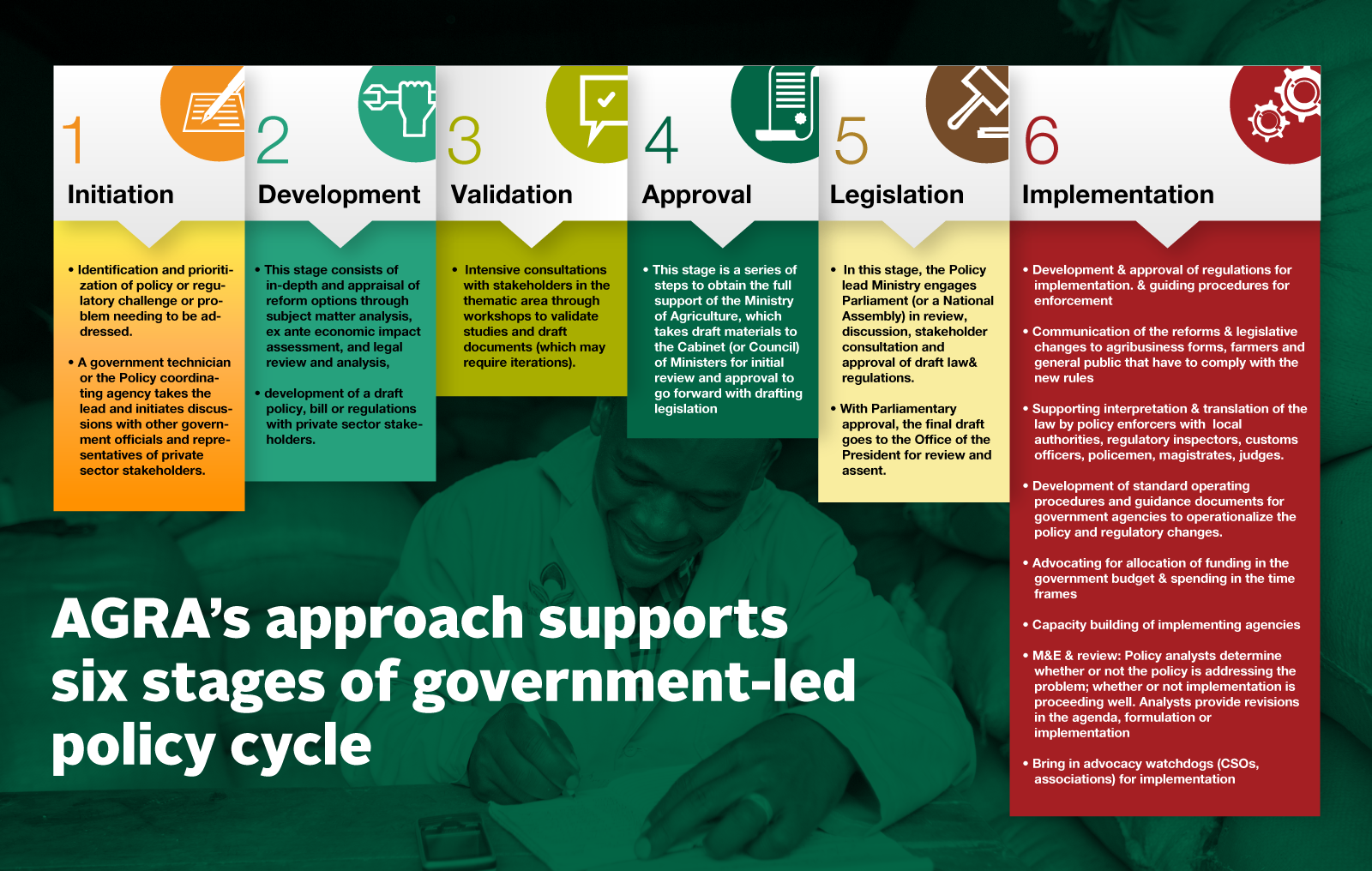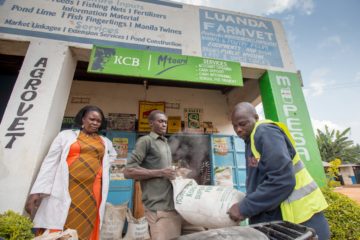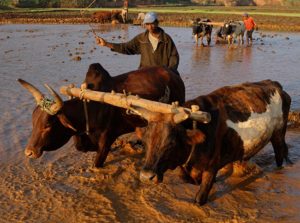AGRA recognizes the centrality of Government in driving and leading the agriculture transformation journey. AGRA also recognizes that to attain agricultural transformation goals and targets, Africa requires strong policies, institutions, and leadership.
Our Goal is to measurably improve the enabling environment for agriculture and agribusiness and expand investments in agricultural value chains to drive agricultural transformation.
We aim to support governments to put in place regulatory reforms for input and output markets and build systems that drive the sector.
AGRA recognizes the critical role of policy to put in place an enabling environment for investment and participation of the private sector.
We work with governments, inter-governmental organizations and other key non-state actors (private sector, think tanks/academic institutions, farmers’ unions, civil society etc.) to advocate for evidence-based policies and political will to cultivate and sustain an enabling environment necessary to attract and maintain private investors and other actors.
A combination of AGRA’s policy and advocacy approach reduces the normal timetable to get agricultural policy reforms completed throughout the administrative and legislative processes.
Our Policy and Advocacy Approach
AGRA’s policy and advocacy approach is guided by the policy cycle from initiation of specific policy reforms , development of policy options , approval of options by cabinet, to approval of legislation by parliament and implementation of legislation, regulations and guidelines. All of this is aimed at strengthening effective and functional seed, fertilizer and market systems as well other systems enablers. Advocacy runs across the entire policy circle depending on the issues or reforms being pursued.
1
Identification of country issues & gaps:
AGRA works with Government; private sector, non-state actors, think thanks, farmers to identify policy and systems issues and gaps. The process could involve having stakeholders through a workshop set up in groups to identify and prioritize the problems in order of importance. It could be informed by a study or government policy decision.
2
Socialization of the problem with stakeholders:
AGRA facilitates an inclusive consultation with stakeholders in the across the thematic areas through workshops to validate the issues and gaps identified or previous studies and draft documents where they exist to agree on relevance and appropriateness of issues at the given time. This socialization helps ensure wider stakeholders buy-in and national ownership of reforms.
3
Undertake analysis, generate evidence and prioritize reform options:
This stage consists of in-depth analysis and appraisal of reform options through subject matter analysis, ex ante economic impact assessment, and legal review and analysis, as well as development of a draft policy, bill or regulations with private sector stakeholders. Inclusive consultations with stakeholders in the thematic area through workshops to validate studies and draft documents as well build partnerships for advocacy.
4
Define proposed policy options and support approval:
Rationalization of support packages and interventions aligned to national plans and priorities obtain the full support of the Ministry of Agriculture and Justices if involves legislation and then presented to the Cabinet (or Council) of Ministers for initial review and approval. It includes advocacy for approval of reform from Executive level to Parliament.
5
Work with government and advocacy partners to drive reform implementation:
AGRA supports government to implement the relevant Act, and or bylaw through development of implementation and regulatory guidelines, standard operating procedures (SoP) and or related instruments. This stage also involves awareness, sensitization and dissemination of legislation, regulatory guidelines, SoP through a number of communication channels (government gazettes, newspapers, radio/TV jingles, public meetings with stakeholder.











